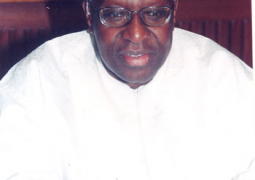The Ministry of Fisheries and Water Resources on Thursday convened a daylong stakeholders’ consultative forum on the institutional options paper for the national water sector reform project.
Held at the Paradise Suites Hotel, the forum attracted participants from different stakeholder institutions.
Speaking on the occasion, Mass Axi Gai, minister of fisheries and water resources, said the official opening of the stakeholder consultative workshop aims to consider the consultant’s institutional options paper within the framework of the ongoing national water sector reform, financed by grant of the African Water Facility through the African Development Bank (AfDB).
According to him, the project cost two million euros including 5 percent government counterpart contribution.
The African Water Facility (AWF) is an initiative of the African Ministers Council on Water (AMCOW), with the overall purpose of assisting African countries to mobilize and apply resources for the water sanitation sector, to enable them successfully implement the Africa water vision of 2025 to meet the MDGs 2015.
The mission of the AWF is to improve the enabling environment and strengthen water resources management in Africa by attracting the massive and appropriate investment necessary to achieve national and regional water objectives.
According to him, the key water sector challenges is to provide for sustainable development and management of water resources to meet higher demands for domestic water supply and sanitation, expanding irrigation agriculture to strengthen food security among others.
In efforts to addressing these challenges, he said, the Ministry of Fisheries and Water Resources conceived the National Water Sector Reform Project (NWSRP) with the objective of supporting government to establish integrated water resources management (IWRP) in line with the national water policy and IWRP roadmap.
According to the minister, the IWRP is a modern approach to water resources management.
It supports the coordinated development and management of water, land and related resources to maximize in an equitable way the economic and social welfare without comprising vital ecosystems.
The IWRP approaches involve applying knowledge from various disciplines as well as insights from diverse stakeholders to devise and implement efficient, equitable and sustainable solution to water resources management and development challenges.
Since water sustains life, effective management of water resources demands a holistic approach, linking social and economic development with protection of natural ecosystems, he said.



